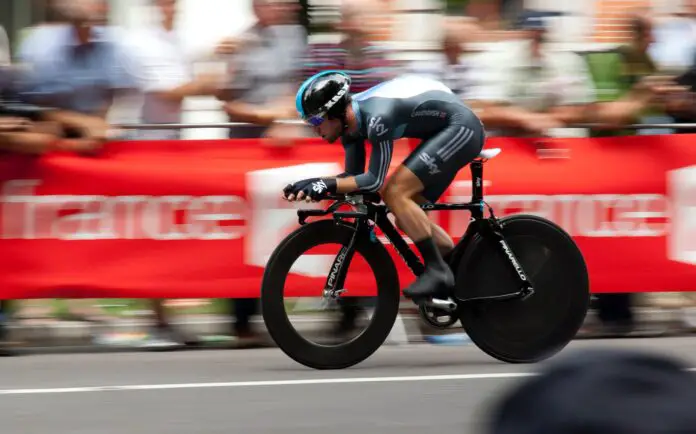How to Complete Your PhD in 3 Years
Accelerate Your PhD Journey: How to Complete Your PhD in 3 Years

Completing a PhD in just 3 years may seem like a difficult task, but with proper planning and determination, it can be achieved. In this article, iLovePhD will share practical strategies to help you succeed in your PhD journey and graduate within the desired timeframe.
Discover actionable strategies and expert tips to complete your PhD in just three years. Learn how to stay focused, organize your research, seek guidance, and maintain a healthy work-life balance to achieve your academic goals efficiently. Start your journey towards a successful PhD graduation now!
Accelerate Your PhD Journey: How to Complete Your PhD in 3 Years
1. Choose the Right Research Topic
Selecting a suitable research topic is the foundation of a successful PhD Start by picking a well-defined, feasible topic that aligns with your interests and expertise. This ensures you focus your efforts on a subject that truly excites you and is manageable within the given time frame.
Selecting a feasible and focused research topic is crucial. Consider these points:
- Interest and Passion: Choose a topic you are passionate about to stay motivated.
- Feasibility: Ensure the topic is manageable within a three-year timeframe.
- Resources and Data Availability: Opt for a topic with accessible resources and data
2. Organize Your Work Efficiently
Breaking down your research into smaller tasks and setting achievable deadlines will help you stay on track. Utilize project management tools or apps to keep your progress organized and monitor your accomplishments.
Effective organization can save you significant time:
- Project Management Tools: Use Trello, Asana, or Microsoft Project to track progress.
- Documentation: Keep detailed records of your research, experiments, and findings.
- Reference Management: Use software like EndNote or Mendeley to organize your references.
3. Develop a Strong Proposal Early On
Craft your research proposal as early as possible and seek approval from your advisor or committee. A solid proposal sets the stage for your research and avoids unnecessary delays.
A well-structured plan will guide your research process:
- Timeline: Break down your three years into smaller milestones and set deadlines for each phase.
- Literature Review: Conduct a comprehensive review early to understand existing research and identify gaps.
- Methodology: Clearly define your research methods and ensure they are practical and efficient.
4. Seek Guidance Actively
Regularly communicate with your advisor or mentors to discuss your progress, challenges, and potential solutions. Seeking feedback actively ensures you stay on the right path and don’t waste valuable time in the wrong direction.
Your supervisor plays a pivotal role in your PhD journey:
- Compatibility: Choose a supervisor whose research interests align with yours.
- Availability: Ensure they have the time to provide regular guidance and feedback.
- Mentorship: Seek a supervisor who offers constructive criticism and supports your academic growth.
5. Conduct an Efficient Literature Review
Conducting a thorough literature review early on will help you identify existing research and gaps in your field. This process guides your research scope and prevents redundant efforts.
6. Stay Focused and Avoid Distractions:
Maintaining focus is crucial during your PhD journey. Limit non-essential activities that may consume your time and energy, allowing you to concentrate on your research.
Time management is critical in a condensed timeline:
- Daily Goals: Set achievable daily goals to maintain momentum.
- Avoid Procrastination: Use techniques like the Pomodoro Technique to stay focused.
- Balance: Allocate time for rest to avoid burnout.
7. Collaborate and Network
Collaborate with peers and researchers in your field. Networking can lead to valuable insights, shared resources, and potential collaboration opportunities, all of which can accelerate your research progress.
Securing adequate funding can alleviate stress and provide necessary resources:
- Scholarships and Grants: Apply for scholarships, grants, and fellowships early.
- Research Assistantships: Consider working as a research assistant for additional funding and experience.
- Institutional Resources: Utilize your institution’s resources, such as libraries, labs, and academic support services.
8. Regular Writing Practice
Start writing your thesis early in the process. Regular writing clarifies your ideas and findings, making the final thesis writing process more manageable.
Writing should be a continuous process, not left until the end:
- Regular Writing Schedule: Dedicate specific times each week to write.
- Chapter-by-Chapter: Aim to complete chapters individually rather than waiting to write everything at once.
- Feedback Loop: Regularly share drafts with your supervisor and peers for feedback.
9. Prioritize Your Health and Manage Stress
Pursuing a PhD can be mentally and emotionally demanding. Make sure to take care of yourself, manage stress, and maintain a healthy work-life balance to avoid burnout.
10. Be Adaptable
Unexpected challenges or setbacks are common during research. Be adaptable and open to adjusting your plans as needed to stay on track.
PhD research can be unpredictable:
- Flexibility: Be prepared to adjust your research plan if you encounter obstacles.
- Problem-Solving: Develop strong problem-solving skills to tackle challenges effectively.
- Support Network: Build a network of fellow researchers, friends, and family for emotional and academic support.
Aim to Defend Early: Set a goal to defend your PhD thesis early in your third year. This provides ample time to address any revisions or feedback from your committee.
Your final defense is the culmination of your PhD journey:
- Mock Defenses: Conduct mock defenses with peers and supervisors to prepare.
- Presentation Skills: Hone your presentation skills to communicate your research effectively.
- Confidence: Trust in your knowledge and preparation to confidently defend your thesis.
Completing a PhD in three years requires dedication, focus, and efficient planning. While it is an ambitious goal, it’s essential to remember that the quality and impact of your research matter more than the timeframe. By following these steps and staying committed to your goals, you can make significant progress in your PhD journey and set yourself up for success in academia and beyond.
